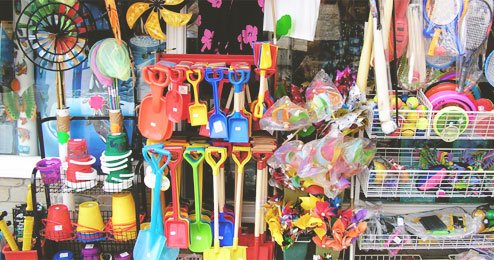Saving money all starts from knowing what you want and what you need. Your “wants” may just be non-essential things that you can do without – so NOT buying them would be the best way to save money.
However, when it comes to your “needs” – buying the cheapest available is not always the best solution. Below are some tips on how you can save money when it comes to your necessities.
I hope you find these practical and useful. A lot are just common sense, but nevertheless, important to consider before you purchase anything.

Ask your friends first
Do you need an umbrella? Before you go out and buy one, ask your friends first if they have a spare at home that you can have. After all, this item is a favorite company giveaway- and if you’re not too “fashion-conscious” you’ll most likely be able to get one for free.
I discovered that a lot of people are more than willing to rid themselves of stuff they don’t really use or have too much of. If you need it more than they do, a friend will most likely be happy to give them to you.
Or offer to buy it
Of course, not everything can be given for free. If it’s a valuable item, then offer to buy it at a fair price. Not only will you save money, but you’ve also helped a friend earn some cash.
Consider buying second-hand
There are things that need to be bought brand new, but there are items that are perfectly okay to buy second-hand. Back in college, I remember buying the scientific calculator I needed from a friend of a friend – that really saved me a lot of money.
In today’s highly connected world, it’s no longer that difficult to look for things you need. Aside from [online classified ads and auction sites](, a simple shoutout to your social network could lead you to someone willing to sell to you something you need at a very low price.
Or make a fair trade
Item swaps are not only cost effective, but also a good way to rid yourself of “junk”. If the items don’t cost the same, then adding a few cash can easily solve the difference.
I remember a friend back in college who traded his percolator for an alarm clock from another dormmate. While he will surely miss having coffee and instant noodles in his room, at least, he can now wake up early enough to eat breakfast and be on time for his classes.
Rent it out
Some things are necessary only for a given time – and if there is a place where you can rent it, then maybe that’s a better option than buying it.
My personal example to this would be the Barong Tagalog. If I attend a lot of formal functions and events, buying a quality Barong would be necessary. But since I seldom go to such events, I deemed it would be smarter to just rent one whenever I needed it.
 [/img]
[/img] Or split with a friend
Sharing ownership for necessities is a viable way to save some money. A friend, who needed studio lights for his photography business, was able to convince another photographer who likewise needed it to split the cost with him.
Almost a year of coordination, planning and friendly compromises resulted to a productive and profitable business for each of them. A few weeks ago, they’ve bought another set and now, they each have their own lights.
And lastly…
Buy only what you really need
Buying things in bulk is usually cheaper, but there are times when it can become less cost effective. Also, be wary of buying sets which contain excess or unnecessary items.
For example, a big bottle of fresh milk is cheaper in volume than the small ones, but if can’t consume it before it expires, then you’re just wasting your money. Or if you just need a screwdriver, then you don’t have to buy an entire tool set because chances are, you won’t get to use the other items anyway.
You can also see this blog on my website: https://fitzvillafuerte.com/how-to-save-money-when-buying-things-you-need.html?utm_content=buffer4e1fb&utm_medium=social&utm_source=facebook.com&utm_campaign=buffer

 Entrepreneur. Blogger. Dreamer.
Entrepreneur. Blogger. Dreamer.
 Entrepreneur. Blogger. Dreamer.
Entrepreneur. Blogger. Dreamer. My Websites:
Facebook
ReadyToBeRich
THANKS FOR READING! :-)
ReadyToBeRich
THANKS FOR READING! :-)
Love this. read my last post too
thank you so much sir. as always :-)
I agree with you, the purchase of cheap goods is often at a loss, because of the cost of which quality is lost. As the British say, "We are not so rich, so do not buy cheap goods" and finally it is necessary to think over each purchase desirably. Thank you for the excellent information :)
Very wise advice that we all need to be reminded of in this consumer age. Will follow you for more :)
Almost all of my furniture belonged to my family ^^ It's still good quality and does its job perfectly.
My wife is a bartering queen. All of the furniture in our house we aquired through kijiji at a quarter of market value or better.
This is superb,reminds me of the book 'The smart money woman'
Congratulations @eliseuy! You have completed some achievement on Steemit and have been rewarded with new badge(s) :
Click on any badge to view your own Board of Honor on SteemitBoard.
For more information about SteemitBoard, click here
If you no longer want to receive notifications, reply to this comment with the word
STOPThanks for imparting tipid tips sir :) really helps a lot
Great post